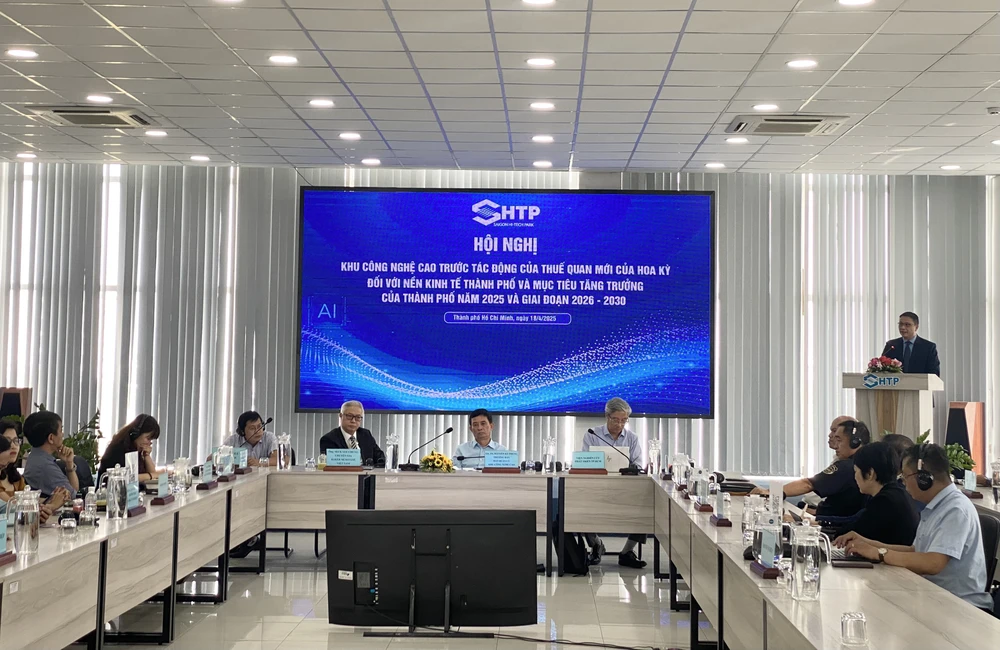
At the conference, experts, businesses and policy makers discussed and proposed a number of solutions to respond to the 46% reciprocal tax rate imposed by the US on goods from Vietnam such as: restructuring products, diversifying export markets, improving internal capacity and increasing support from state agencies.
According to Master Pham Binh An, Deputy Director of the Ho Chi Minh City Institute for Development Studies, the US is among Vietnam's export markets with continuous growth over the years. Trade products between the two countries are not competitive but complementary.
The new US tariffs have had an impact on the economy of Vietnam in general and Ho Chi Minh City in particular. Some of the impacts identified are on exchange rates, FDI capital flows, imports and exports, industrial production, employment, etc.
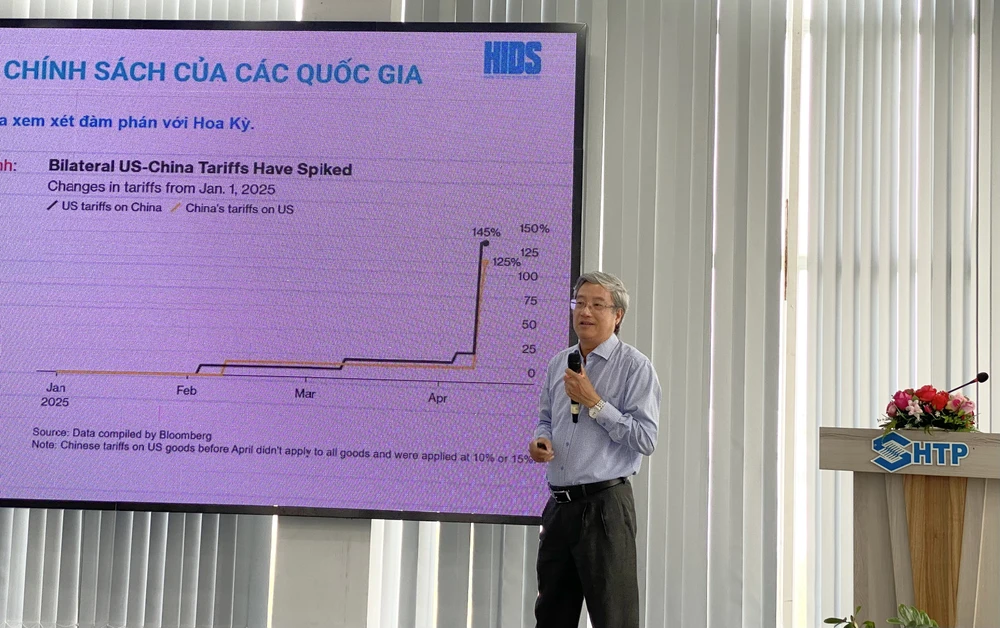
“For Ho Chi Minh City, the city's key export products are also strongly affected by the reciprocal tax imposition, such as: Electricity - electronics, textiles, footwear, wood, agricultural products, processed foods, etc. When these products are subject to high taxes, businesses will have difficulty in consumption, export revenue will decrease, and at the same time, there will be a chain reaction affecting industries in the supply chain such as raw material suppliers and supporting industries,” said Master Pham Binh An.
Associate Professor, Dr. Le Quoc Cuong, Deputy Head of the Management Board of Ho Chi Minh City High-Tech Park, said that the US's 46% reciprocal tax rate on Vietnam is the highest in the world and will certainly have a strong impact on the Vietnamese economy, especially high-tech products.
However, the new US tariff policy is not only a trade barrier, but also a catalyst for the restructuring of global supply chains and geostrategic shifts in core industries.
In that context, Ho Chi Minh City is facing a strategic moment to reposition its role in the Southeast Asian economic space, restructure its export growth model, promote industrial restructuring, protect jobs and improve its ability to adapt to external shocks.
At the same time, this is also an opportunity for Ho Chi Minh City to accelerate the transition to a green, digital, self-reliant economy, restructure export markets and improve product quality.
“SHTP affirms its commitment to accompany the business community during this turbulent period, and calls for close coordination between the government, businesses and consulting organizations to maintain the pioneering role of the High-Tech Park in innovation and sustainable economic development,” Associate Professor, Dr. Le Quoc Cuong emphasized.
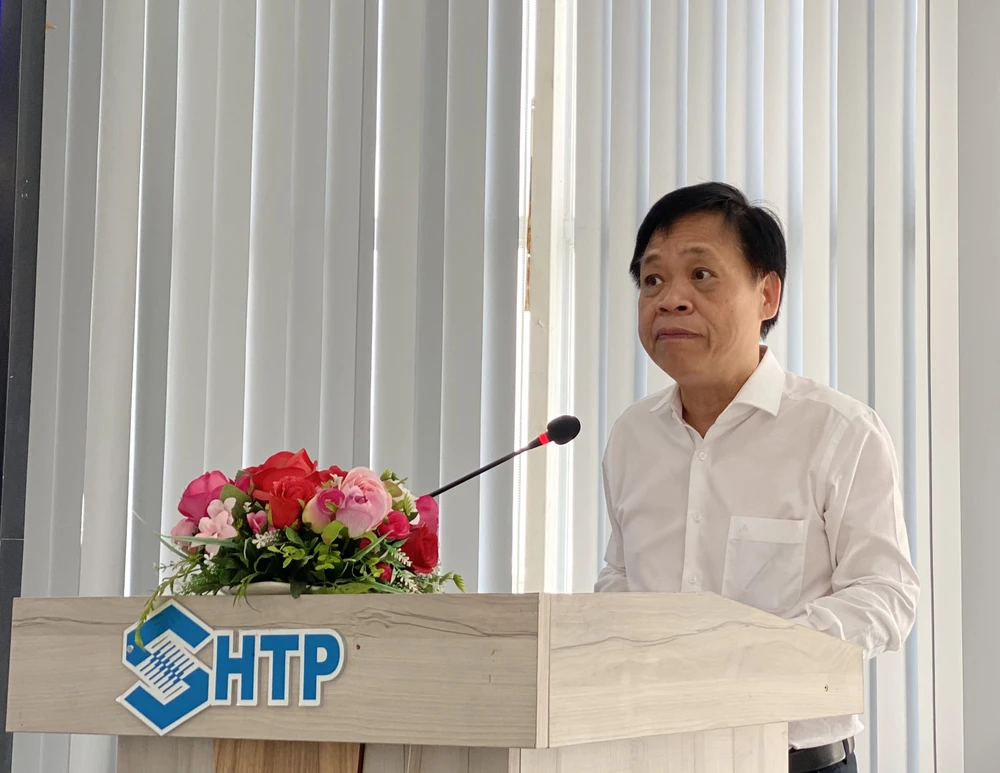
At the conference, experts also said that the new tariff policy is becoming a strategic tool in the global economic and technological competition. This issue poses great challenges for developing countries like Vietnam, which is strongly attracting investment capital into the high-tech sector.
Some major impacts include: Increased export costs (high-tech products and components exported from Vietnam to the US may be subject to higher taxes); repositioning strategies of FDI enterprises (some foreign-invested enterprises (FDI) may be forced to adjust their production and business strategies, shift markets, and relocate production facilities); increased barriers for domestic enterprises (Vietnamese enterprises will face many obstacles, slowing down the process of international integration).
Source: https://www.sggp.org.vn/shtp-cam-ket-dong-hanh-cung-doanh-nghiep-truoc-chinh-sach-thue-quan-moi-post791285.html



![[Photo] Prime Minister Pham Minh Chinh receives Ambassador of the French Republic to Vietnam Olivier Brochet](https://vphoto.vietnam.vn/thumb/1200x675/vietnam/resource/IMAGE/2025/5/13/f5441496fa4a456abf47c8c747d2fe92)
![[Photo] Prime Minister Pham Minh Chinh meets with US business representatives](https://vphoto.vietnam.vn/thumb/1200x675/vietnam/resource/IMAGE/2025/5/13/5bf2bff8977041adab2baf9944e547b5)
![[Photo] President Luong Cuong attends the inauguration of the international container port in Hai Phong](https://vphoto.vietnam.vn/thumb/1200x675/vietnam/resource/IMAGE/2025/5/13/9544c01a03e241fdadb6f9708e1c0b65)







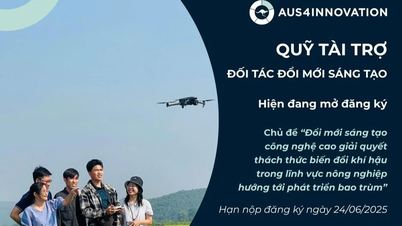





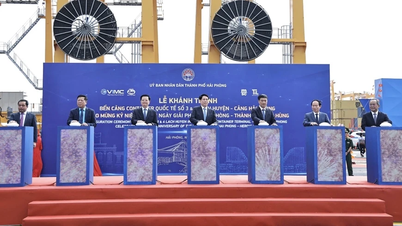

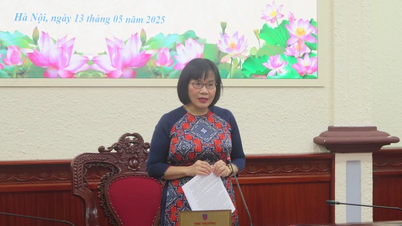
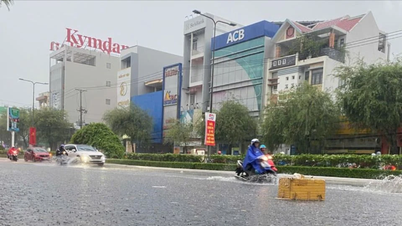
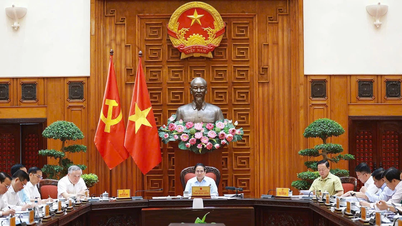

















































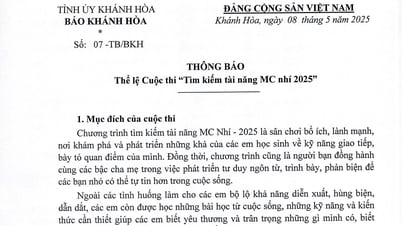



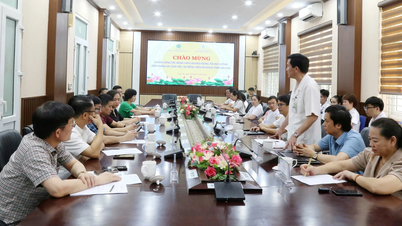

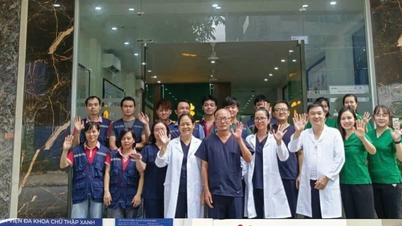

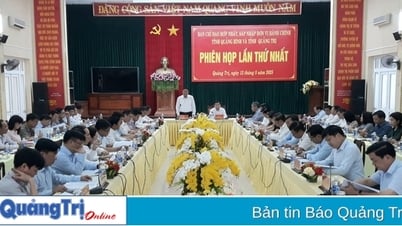













Comment (0)